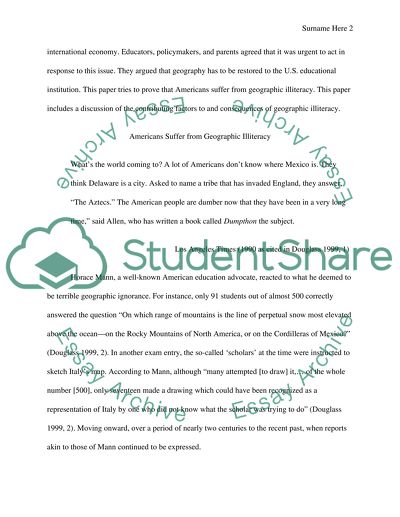Cite this document
(“Geographic Illiteracy: A Continuing American Dilemma Term Paper”, n.d.)
Retrieved de https://studentshare.org/geography/1435574-geographic-illiteracy-a-continuing-american-dilemma
Retrieved de https://studentshare.org/geography/1435574-geographic-illiteracy-a-continuing-american-dilemma
(Geographic Illiteracy: A Continuing American Dilemma Term Paper)
https://studentshare.org/geography/1435574-geographic-illiteracy-a-continuing-american-dilemma.
https://studentshare.org/geography/1435574-geographic-illiteracy-a-continuing-american-dilemma.
“Geographic Illiteracy: A Continuing American Dilemma Term Paper”, n.d. https://studentshare.org/geography/1435574-geographic-illiteracy-a-continuing-american-dilemma.


